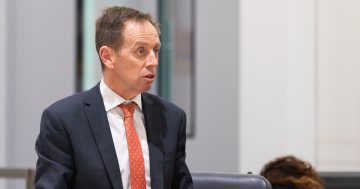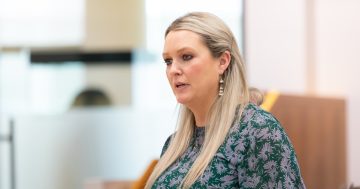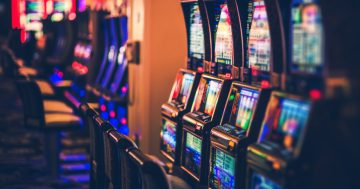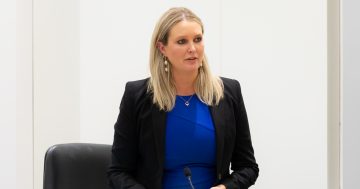
Labor backbencher Dr Marisa Paterson has called on the ACT Government to do more to limit gambling harm post-lockdown. Photo: File.
As Canberra pubs and clubs reopen post-lockdown, Labor backbencher Dr Marisa Paterson has called on the ACT Government to do more to limit gambling harm, saying the experience of interstate jurisdictions should serve as a warning to the Territory.
She told an ACT Budget estimates hearing last week she’s concerned about what’s likely to happen post-lockdown to people who are at risk of gambling harm.
While Dr Paterson said the ACT already has several gambling harm reduction strategies in place, such as self-exclusion programs, the ACT Gambling Support Service and helpline, and trained staff in venues to identify at-risk patrons, she said these need to be ramped up as the Territory exits lockdown.
With capacity limits in venues increasing in the coming weeks, more people will be able to access pokies, and Dr Paterson doesn’t think it’s too late to implement changes.
Dr Paterson, who was previously the head of the ANU Centre for Gambling Research, noted people tend to be more at risk of gambling harm during stressful or high-anxiety periods, of which there have been many recently.
“We put that in the mix with gambling harm, and gamblers will then be at higher risk of experiencing harm than they normally would be,” she said.
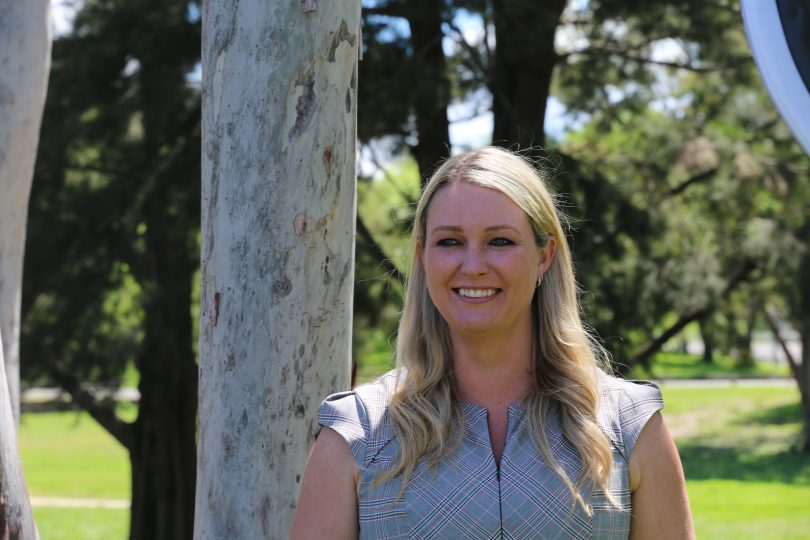
Dr Marisa Paterson previously headed up the ANU Centre for Gambling Research. Photo: Dominic Giannini.
She also cited the experience of other Australian jurisdictions, including the surrounding region of NSW.
“Previous lockdowns in other jurisdictions showed massive spikes in turnover at venues once pokies went back online, with people spending much more money than they usually would,” said Dr Paterson.
“There is evidence to suggest that when clubs and pubs are open, people go out and spend money at higher rates than normal.”
In ACT Budget estimates hearings on Thursday, 28 October, ACT Minister for Gaming Shane Rattenbury said there hasn’t been specific work to minimise gambling harm as lockdown restrictions ease, but that there are ongoing efforts across agencies on the issue.
He said due to capacity limits, access to pokies would naturally be rationed, and he cited the recently held Gambling Harm Awareness Week as an example of the ACT Government’s work to address the issue.
Mr Rattenbury also told the hearing that preliminary data is already showing an increase in takings from pokies since the lifting of COVID-19 lockdown, and noted there had been a nationwide rise in the number of people signing up for online betting and gambling platforms during the lockdowns in 2020 and 2021.
“The bottom line is poker machines are deliberately addictive,” he said. “They are designed to hook people in and to extract – in some cases, frankly – more money than people can afford, which is why we have a long-term reform program of harm minimisation.”
Dr Paterson said if a similar situation was to arise with alcohol where bottle shops, pubs and clubs were all shut during lockdown and then reopened, the ACT Government would be putting in place “significant risk mitigation strategies” as well as increased policing.
“We would be recognising as a community that there is potential for substantial harm from these venues reopening,” she said.
Dr Paterson said it’s likely that the next few months will see problem gamblers or those at risk of gambling harm attend venues more often.
“We need to ensure venues are hypervigilant during this period about what people are doing inside and look out for red-flag behaviours,” she said.
In May 2021, the ACT Government established an advisory council which forms part of ongoing efforts to reduce gambling harm in the Territory. The council is chaired by Mr Rattenbury and comprises club representatives and gambling harm advocates.
The ACT has long been working in the area of gambling reform, with harm minimisation strategies, such as reducing the number of pokies in Canberra pubs and clubs, underway.
If gambling harm is impacting you, a friend or a family member, you can get free, confidential online support at gamblinghelponline.org.au, or you can speak to a support person on 1800 858 858.















